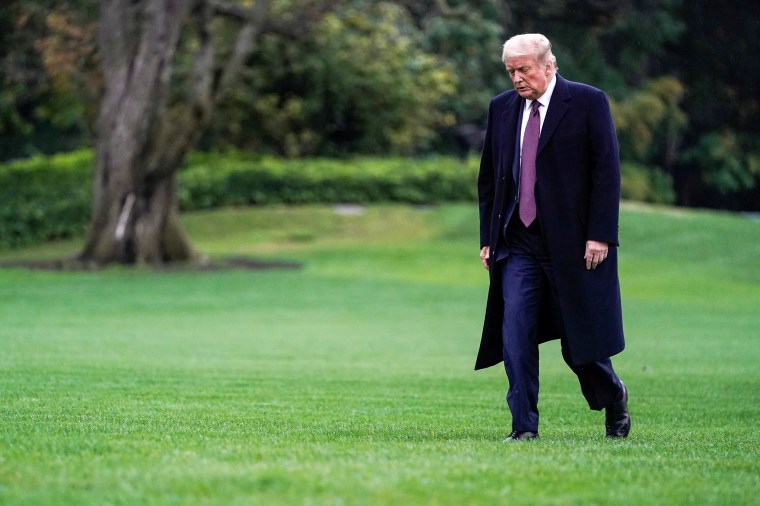Two weeks ago, Donald Trump suggested he was "not at all concerned" about contracting the coronavirus. It was this posture that led the president to, among other things, hold indoor campaign rallies, repeatedly mock mask-wearing, downplay the significance of the pandemic crisis, and assure the public that the threat would soon pass.
It was against this backdrop that much of the country woke up to dramatic headlines about the Republican's health.
President Donald Trump and first lady Melania Trump tested positive for the coronavirus, he announced on Twitter early Friday. "Tonight, @FLOTUS and I tested positive for COVID-19. We will begin our quarantine and recovery process immediately. We will get through this TOGETHER!" Trump, 74, tweeted.
Trump's doctor, Sean Conley, echoed the assertions, saying in a statement, "The President and First Lady are both well at this time, and they plan to remain at home within the White House during their convalescence."
There are far more questions than answers at this point. We don't know, for example, whether the president has any symptoms, or will ever have any symptoms. Trump is at a heightened risk given his age and weight, but it's difficult to predict what, if anything, will happen with the president's health in the near future.
As for the electoral circumstances, Election Day is just 32 days away, and there's nothing but uncertainty about the road ahead. A Washington Post report quoted aides close to the president saying "all of Trump's political events will be canceled for the foreseeable future," which is not surprising.
That said, the "foreseeable future" includes quite a few "political events," including the next presidential debate, currently scheduled for Oct. 15 in Miami. A New York Times report described the fate of that event as "up in the air."
But a separate Times report considered the broader implications of Trump's announcement, noting that the Republican is now "inviting significant questions about his cavalier attitude toward the pandemic.
Mr. Trump ... compounded his difficulties by disregarding and at times belittling the basic precautions, such as wearing a mask, that his health advisers were urging Americans to take to protect themselves.... [S]trategists in both parties and even senior aides to Mr. Trump said the president would face a harsh judgment from voters for throwing the country into greater uncertainty after one of the most trying years in American history.
This seems likely given the circumstances. The president chose to mislead the country about the severity of the crisis. He blew off health guidelines touted by his own administration. Trump became one of the nation's most irresponsible voices on matters of public health, spreading misinformation with reckless abandon. He sidelined public-health experts who dared to tell him accurate information he found politically unsatisfying.
Just a few days ago, Trump stood on a national debate stage and ridiculed his opponent for wearing a mask, boasting, "I don't wear masks like [Joe Biden]. Every time you see him, he's got a mask. He could be speaking 200 feet away from me, and he shows up with the biggest mask I've ever seen."
Fifty hours later, the president said he'd contracted the virus.
"This was avoidable," said NBC News contributor Dr. Vin Gupta, a lung specialist at the University of Washington. "This did not have to happen if they were practicing the proper procedures and not going to these rallies and having these chaotic events, where, of course, airborne exposure was going to happen despite it being in an outdoor setting.
"No masking, no distancing -- what did they expect was going to happen?"

